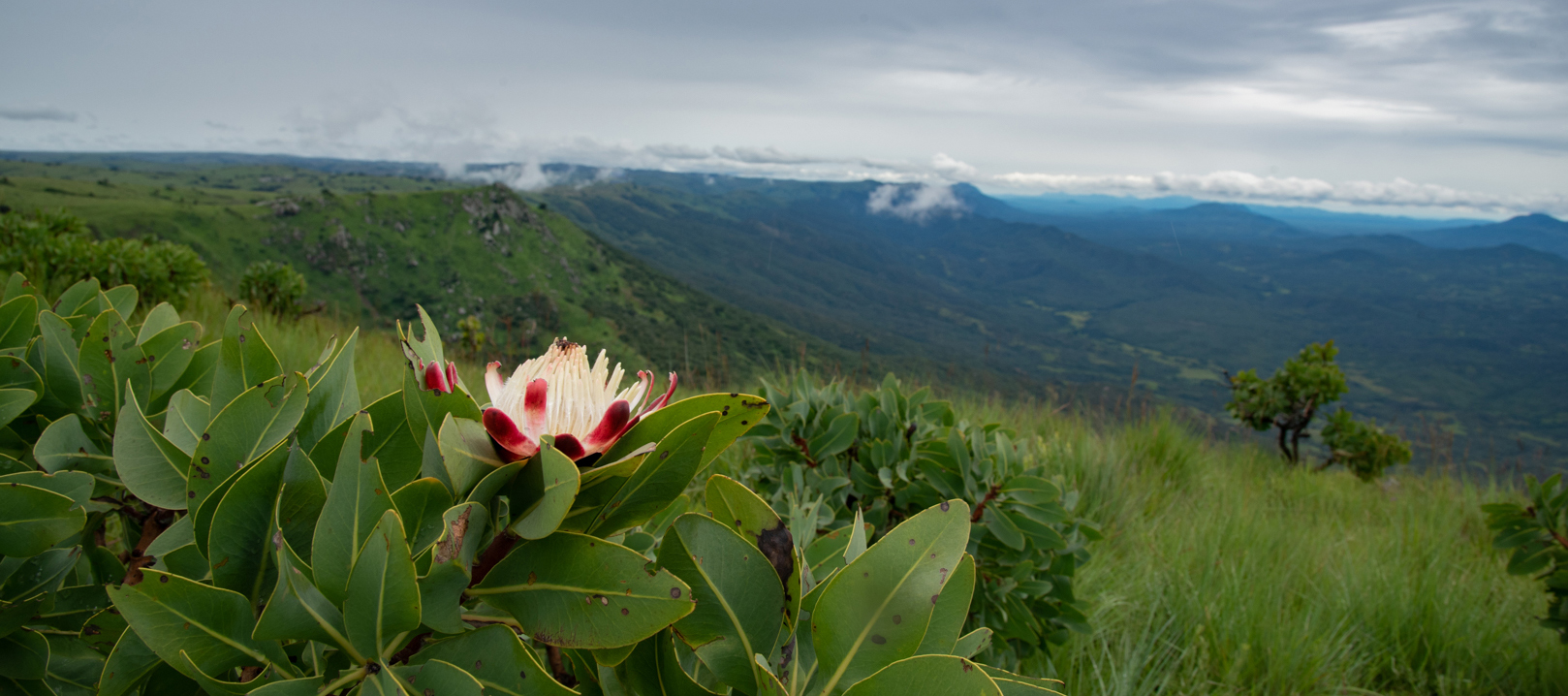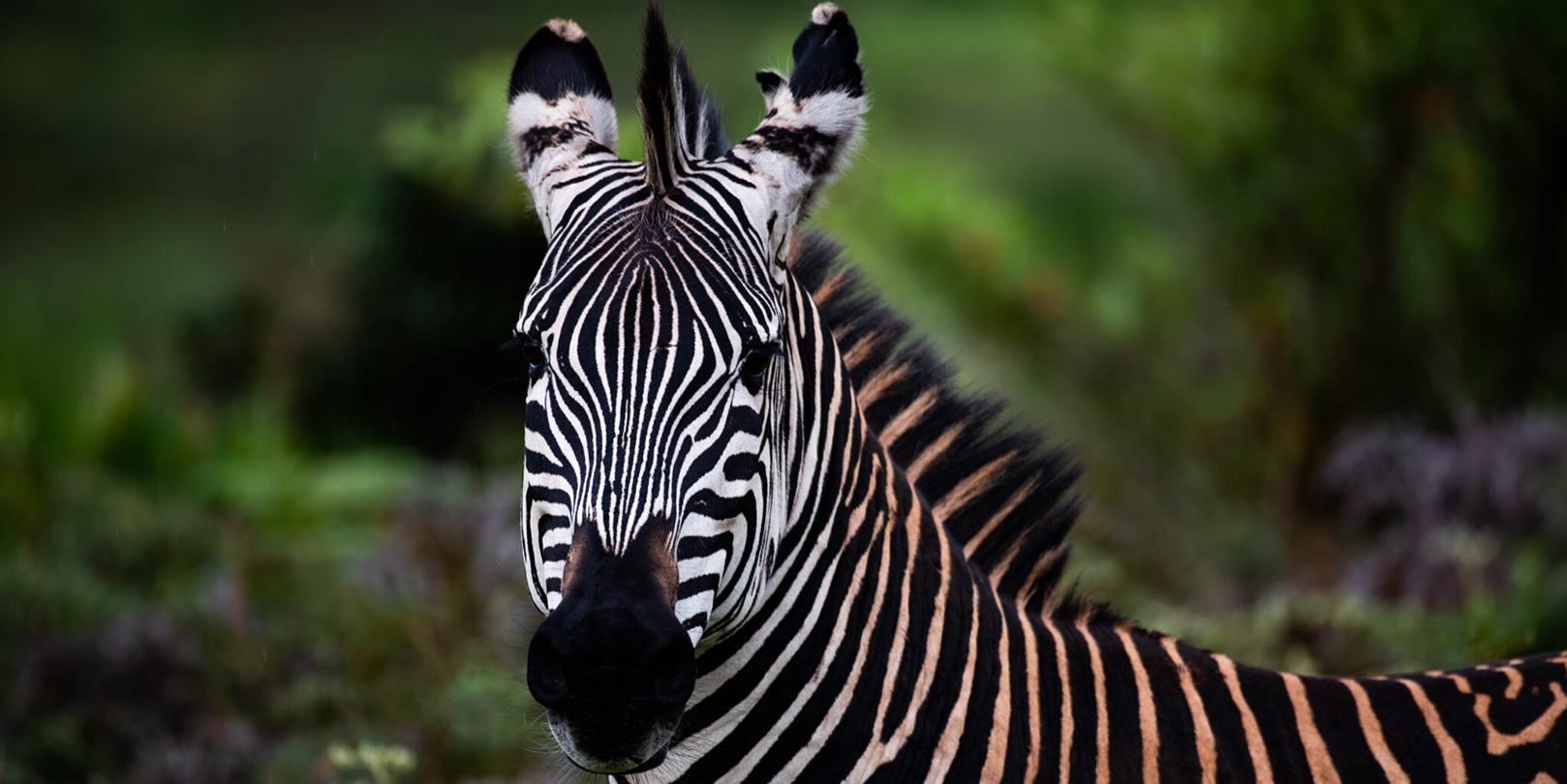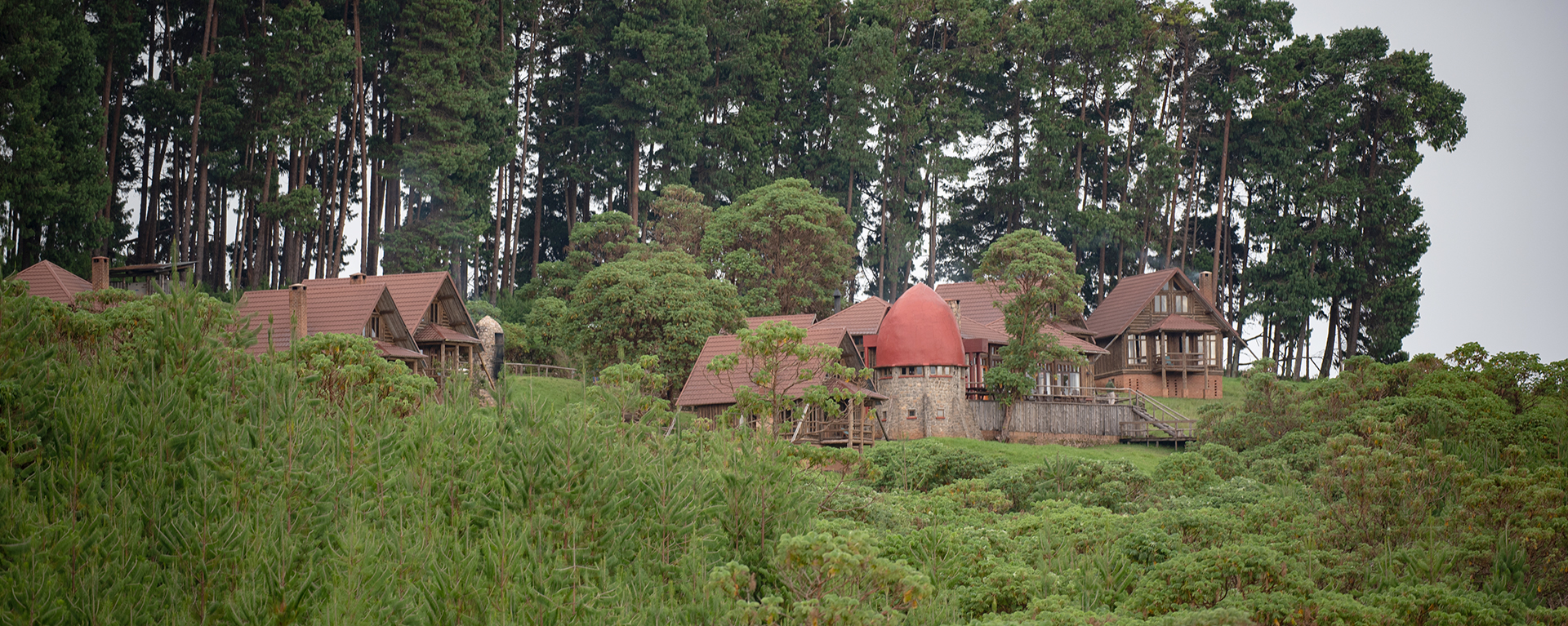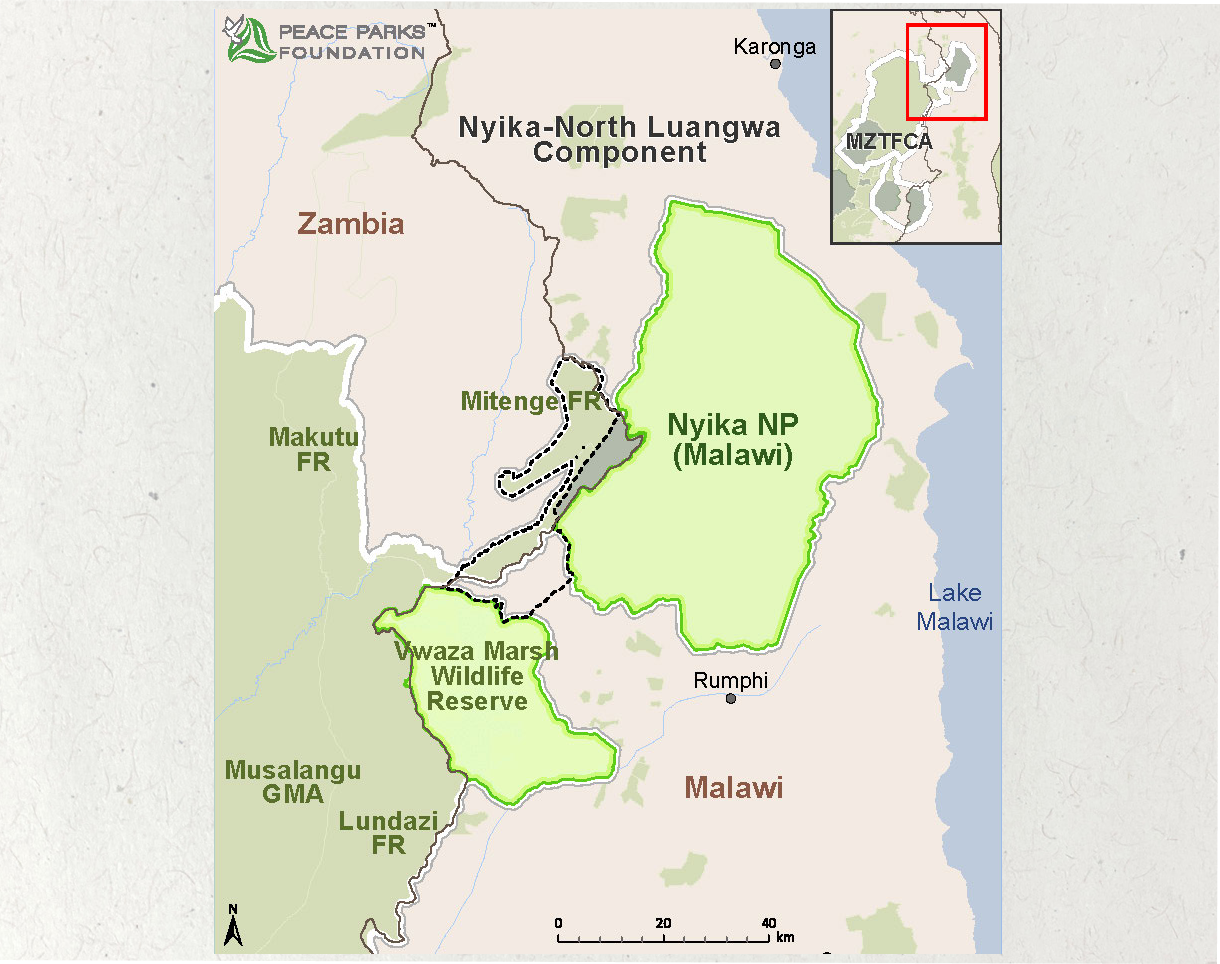OUR WORK
Conservation at scale

Nyika National Park is Malawi’s largest national park located on the Nyika Plateau, a relatively large highland massif sitting on the international boundary between Malawi and Zambia. As a mountain catchment area, the plateau plays a significant role in providing opportunities to conserve several ecosystem services, firstly, as a catchment for water production, and secondly, as a refuge area for rare and unique species of both fauna and flora. Nyika’s high-lying areas are often shrouded in mist, giving them a unique appeal. In summer a multitude of wildflowers and orchids burst forth on the highlands, making it a sight unlike any other.
Under the co-management agreement, the Government of Malawi, through the Department of National Parks and Wildlife (DNPW) and Peace Parks will establish an independent Trust with an ensuing mission to balance both conservation and local development. It will do so by adopting an innovative approach to managing the two protected areas as one landscape, employing a business-like mindset and ensuring inclusivity in decision-making.

Funded by KfW, already established initiatives include protected area management and development of infrastructure, supporting institutional arrangements, and community involvement in conservation.
Much effort has been put into enhancing the working environment, improving accessibility and providing better tourist facilities, this includes upgrading and maintaining roads, renovating entrance gates and accommodation establishments, as well as refurbishing and constructing staff housing, offices and service facilities.
A great deal of conservation work in this landscape involves the clearing of invasive plant species and fire management, with extensive firebreaks cleared annually.
Rewilding

Peace Parks has been assisting Nyika with rewilding programmes since 2007. In 2017, this continued with the translocation of 34 elephants from Liwonde National Park in Malawi, where the carrying capacity of elephants had been far exceeded, to Nyika National Park. Three decades ago, more than 300 elephants graced the steep foothills of the Nyika Plateau. Extreme poaching, however, resulted in an estimated 67% decline in this population since 1992, and by 2016 only approximately 100 elephants could be found roaming the 3 200 km2 park. The benefits of the translocation include improving the viability of the herd and fast-tracking the recovery of critical elephant numbers. The elephants, which have been closely monitored since their release, have settled in well.
Combatting wildlife crime
The most challenging component of counter-poaching in Nyika National Park is the terrain; road conditions are poor, and the network is limited. To this end, a law enforcement strategy has been put in place that will significantly strengthen the park’s anti-poaching efforts. The main focus of the strategy is to facilitate the capacity-building of rangers and, with support from the Environmental Management and Conservation Trust, a Forward Operating Base and a rapid response unit based at the same location was established. The unit, consisting of highly-trained rangers, a canine unit with dogs that can run off-line, and a helicopter that can cover significant ground in a very short period of time, complement the existing patrols. If patrols, for example, spot a group of poachers at a distance from which they cannot intercept, the rapid response unit is deployed to provide the field rangers with the support they need.
Community development
As part of our support to the Malawi-Zambia Transfrontier Conservation Area, we assist communities living in the buffer zone between Nyika National Park and Vwaza Marsh Wildlife Reserve to improve their livelihoods by introducing agricultural methods more resilient to the effects of climate change. Communities are permitted to continue sustainably harvesting fast renewable natural resources, such as thatch grass, within the parks. Special entry points into the park have also been constructed to allow people easy access to where they can hang beehives and harvest honey. To further promote development and lessen the dependency on natural resources, communities receive 25% of the revenue generated by the park which is used for long-term community development projects as identified through the needs of the communities themselves.
The major infrastructure undertaking in 2023 was the commencement of the construction of the Nyika Vwaza Water Scheme. Around 33 000 people will ultimately access potable water once the project is completed in early 2025.
Advancing Together in Malawi
Conservation finance
Tourism
Nyika National Park is difficult to access due to the poor condition of the main road. As soon as this is resolved we expect tourism to increase. For birdwatchers, the park has a lot to offer: over 400 species have been recorded. The rare Denham’s bustard and the wattled crane are among those to be seen, as is the red-winged francolin – endemic to Nyika.
Nyika is wonderful for trekking and mountain biking as well as more conventional 4×4 excursions and safaris. There is such a lot to see in the vast park: waterfalls, a neolithic rock shelter, trout pools and even a ‘magic lake’ are just some of the attractions beyond the breathtaking vistas and wildlife encounters.

Accommodation at Nyika has been run by Central African Wilderness Safaris since 2010. Chelinda Lodge offers stunning, upmarket log cabins, and the nearby Chelinda Camp has more cost-effective cottages and rooms.















